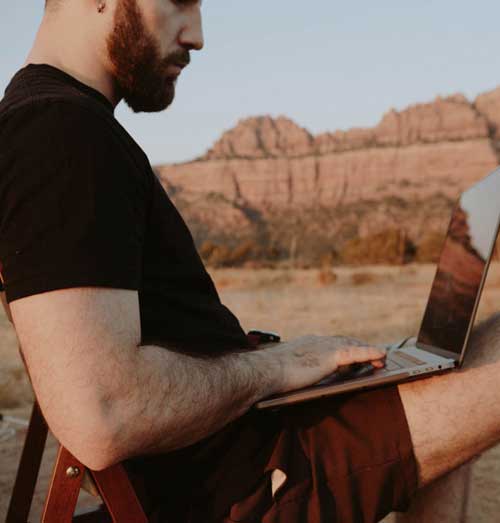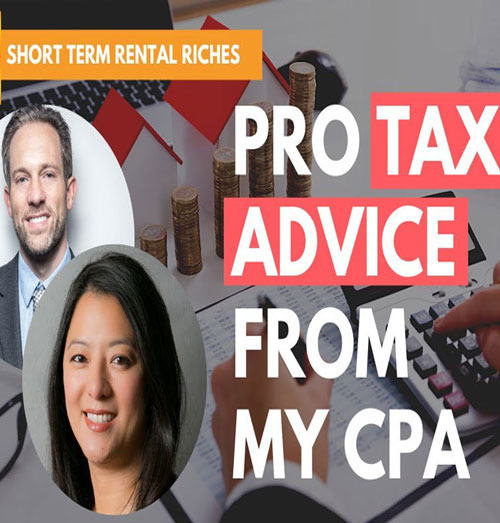How to build an Airbnb Business: How to Stand Out in the Short-Term Rental Market with Shawn Moore
Welcome back to the Short-Term Rental Riches podcast. In this episode, we’re diving deep into the world of short-term rentals with a true industry expert, Shawn Moore. Shawn is the host of the Vacation Rental Revolution podcast, an author, and the founder of Vodacy. With 23 years of experience in real estate investing and short-term rentals, Shawn has a wealth of knowledge to share.
Join us for an insightful conversation where Shawn discusses how he stumbled upon the world of short-term rentals by accident, the evolution of the industry, and the keys to success in this ever-growing market. From choosing the right property to finding the perfect management partner, Shawn shares valuable insights to help you thrive in the short-term rental business.
In this episode, you’ll learn:
- The three phases of short-term rental success: Acquisition, Management, and Marketing.
- The importance of curating a unique guest experience.
- Strategies for choosing the right property manager for your short-term rental.
- How the short-term rental industry has evolved and the opportunities it presents.
- Tips for navigating regulations and raising the bar for hospitality.
If you’re considering entering the world of short-term rentals or looking to elevate your existing portfolio, this episode is a must-listen. Shawn’s expertise will empower you to make informed decisions and achieve success in this exciting industry.
Don’t forget to grab a free copy of Shawn’s book, “What the Hell Is a Lifestyle Asset?” on Vodyssey’s website to dive even deeper into the world of short-term rentals. And if you enjoyed this episode, please like, subscribe, and leave a review to help us continue bringing you valuable insights from industry experts. Thanks for tuning in, and let’s get started!
Need help managing your short-term rental and you don’t want to go it alone? Shoot us a message here and we’ll see if we can help.
Stay updated on all things short-term rentals and join us at our upcoming virtual event on October 14th, where we’ll delve into margin mastery and share our industry expertise. Find out more here
You can find all of our links here including our recommended resources, short-term rental playbook, Instagram, and more!
Click Here to view TranscriptWelcome to short-term rental riches. We’ll discuss investing in real estate but with a specific focus on short-term rentals. Quick, Actionable items to Acquire, Manage and Scale your portfolio. I’m your host Tim Hubbard.
Tim: Welcome back to the Short-Term Rental Riches podcast. I feel really privileged to be in the podcast world to have connections with a lot of other super educated and experienced people in the short-term rental industry. One of those people is Shawn Moore, and Shawn is the host of the Vacation Rental Revolution podcast. He’s an author. He’s the founder of Vodyssey. He’s been in the space for a real long time, so I’m excited to have him on the show. Welcome to the show, Shawn.
Shawn: Awesome, Tim. I appreciate you having me. I’m excited for another conversation. This will be good.
Tim: Yeah, totally. I know you got a ton of experience. You’ve been in the space for a long time. Excellent podcast as well, by the way. So, thanks for putting all those fantastic episodes together. You want to give us a little background?
Shawn: Yeah, you know, it’s been an interesting ride for me. I’ve been in real estate investing for full time now. I can’t believe it’s been this long for 23 years. My 23rd year is not having a real job, right? It’s always been in the real estate game and bounced around a lot of different asset classes, really started off in the fix and flip world for a long time, started rolling into development deals, built a portfolio, some long-term rentals. And ultimately, back in 2006, I bought my first vacation home. I didn’t intend it to be a short-term rental. Never even thought about getting into that game. We just started we were doing well enough. We were buying some second homes. Yeah, I lived in Utah, bought some in the mountains in Utah and bought this little cabin up there. And we ended up starting to not use it as much as we thought we were going to use it. Everything was kind of changed around with the economy. We thought, you know, we’re going to throw this on the local KSL ads and the Craigslist ads and the local classifieds and all these different things that we had at the time. And it started booking every single weekend. And so didn’t think much of it, but it was kind of we needed to because at the time we were doing a lot of big development deals. And one of the deals we were working on, the owners of the resort that we were working on on the development got indicted on securities charges. And so, the real estate investment business was just over because we had one big client, right? We had one big person that was doing this development. So, I started actually losing a lot of my assets. I started not being able to pay bills, everything else, and actually had to short sell our house. We lost our vehicles. We kind of we started sitting on our hands for a while and not doing anything because I just was sitting here and I kind of was blaming the world, right? I played the victim role for a little while and said, you know, this isn’t my fault. You know, we’ve worked hard. This isn’t fair. All those all those things that we give ourselves excuses. Well, while you’re doing that, nobody cares, right? If the bills aren’t getting paid, banks don’t care. And throughout this slide of us losing everything was also during the real estate slide, everything was going down in value. Now we’re in 2008, 9, 10, and we’re going through this slide. And I had this cabin that was actually making me money during this whole time. And so, when we kind of recovered and we got back on our feet and started working again and started doing our thing, I looked back and realized how well these short-term rentals did in one of the worst performing real estate timeframes in history, right? And and started to realize that maybe there’s something to this asset class. And so that’s what really kind of opened our eyes to short term rentals was by accident, frankly. Then by 2011, 12, we really started to pay attention to this asset, really started to focus on this asset. And ever since then, we just haven’t looked back. We’ve been investing in short term rentals. I don’t do any of the arbitrage co-hosting, any of that stuff, which I think a lot of guys and people that do that, it’s awesome. It’s an awesome way to do it. We’ve always been in the ownership side of it. And so, from that point forward, we just started stacking assets and we realized that we don’t have to have these huge portfolios pay a lot of bills. And we usually maintain a portfolio between six and 10 properties and we do trade properties. We do maximize them and then trade up. And so, at this stage, we have a fairly high performing portfolio for the size. We’re near in seven figures passively every single year with a portfolio of eight properties. It’s a pretty impressive asset class, if you will. And I know you know this, but that’s what got us into the game was back in the day, just kind of by accident.
Tim: Yeah, that’s awesome. Quite the journey. Tons of experience. Always good to hear someone being full time in real estate for such a long time, too. I think that’s why most of us get into it, right? We’re looking for the time, freedom and not having that real job. That’s awesome, Shawn. Can you tell us a little bit more about your portfolio, maybe kind of where the properties are and what the sort of mix is?
Shawn: Yeah, absolutely. So, I’ve always just been a believer. Like I call these lifestyle assets. We affect the title of my book is What the Hell is a Lifestyle Asset, right? And to me, we kind of started calling them lifestyle assets for us because we like the personal use aspect of like, I love being able to use our properties with our friends and family and building a portfolio that’s pretty fun to own. Right. And so that’s what we, my portfolio revolves around areas that we enjoy. Right. We love outdoors. We love the mountains. We love national parks. And so, our most of our entire portfolio is built around those types of markets and those types of profit drivers. You know, there’s always the big question of where’s the best markets to invest, you know, and I think that sometimes people overcomplicate it. And I think that not that there are more investable markets than others. We all know that to be the case. Right. We know that based on acquisition costs versus revenue, there’s markets that are going to be more favorable than others. And, but there’s more to it than that. And I believe, and I always ask people, why don’t you start to analyze markets based on where you would love to own a vacation home? And that’s how we built our portfolio. And then we go make sure it’s investable. We go make sure that we can make money there. But there’s more than just chasing the most investable markets, because those ratios change on a regular basis. And, you know, we use a lot of the same tools, a lot of us in this game, we love like the air DNA’s of the world and being able to pull the data and really make decisions, analytical decisions. That’s super important. But when you’re looking at a list of 150 homes that are all investable, you know, markets that are all investable, how are you choosing it? And I always tell people part of the game we play is really delivering a great experience. And if you’re not familiar with the area, and you’re not part of the target audience in that area of who you’re going to go attract, you’re going to fall flat. And I’ve seen that to be the case. And so, I always buy properties that I love. And I’m part of the target audience. Like I love like I have fly fishing cabins, and I have, you know, cabins that are adult getaways, things that I enjoy doing, so that I can speak to the audience, I can set up an experience and versus just going and picking the most investable market that I might not be as interested in. My portfolio, a great example of that too, is I don’t have a whole bunch of large properties, I don’t buy the big, massive properties, because I don’t travel with big groups. We typically go with just our family and maybe one other couple. So, we don’t travel in these big groups. So, my portfolio is not gonna be that. We’ve got a lot of people that we work with, that have these massive properties that do every bit as well as our properties do, because they travel in big groups, because they can speak to that audience, I’m going to not do a very good job of setting those properties up outside of looking like a model home, right? Because when we talk about kind of tactical things that you should do to succeed, one of them is dialing in a great experience for a specific target audience. And so, I always love talking to different, you know, owners, investors in this game, and we all might be following the same path and running down the road with the same asset class and our portfolios look completely different. And they can all be very successful and high performing based on how you set them up. And I think it’s a lot easier to set them up based on your personal target, you know, portfolio and kind of demographic than it is to try to figure out somebody else’s.
Tim: No, that’s a great point. Yeah, if you are the guest avatar, then you don’t have too much to figure out, do you?
Shawn: Right. It’s a lot easier, right?
Tim: Yeah. That’s an excellent point.
Shawn: Yeah.
Tim: Yeah. So, I think that’s one of the things that’s just really exciting and fun about short term rentals, compared to traditional real estate investing, you know, buying multifamily, large complexes, for example, is that we can use them as lifestyle assets, there can be that travel component. There’s kind of two boats here, right? There’s some people that are doing it, just looking for maximizing their investment 100%. But then there’s the other boat where family wants to spend vacation there, or it’s a place that you just happen to like going to. And so, there’s definitely the fun side. I like that. And if we can make those work, then that’s fantastic, right? I think that just makes the journey a lot more fun. Do you have some tips for people in the lifestyle asset side of things? You know, they’re looking for that place. A lot of what I found, Shawn, is that sometimes in these really heavy vacation rental markets, the prices are pretty high, right? Especially over the last few years, they’ve gotten pretty high. So, it’s been a little harder to find some places that maybe we can use as a lifestyle asset, but that still provide some cash flow.
Shawn: Yes.
Tim: You have just some tips or general recommendations around that?
Shawn: Yeah, I think the biggest one is just like you said, there’s two sides of the coin of okay, this is strictly an investment, I want to supplement a vacation home for us and our family, right? And supplements, the key word if you’re going to use it more often than rent it out, right? We know that to be the case, especially in a lot of these vacation markets, if you’re going to buy it as a lifestyle asset, and you want to be somewhere in the middle, you want it to be a good investment as far as cash flow investment, right? Most real estate is a good investment long term period, just because of appreciation, and no pay down by somebody else, all those different things that we have. But just cash flow wise, if you’re going to be on the lifestyle buyer, and you’re going to be a lifestyle buyer, you’re going to supplement a vacation home, but you’re probably not cash flowing if you’re using it on all the major holidays and during the peak seasons a lot, right? You need to be able to capitalize on that asset, when it’s at its highest earning potential. So, I always tell lifestyle buyers, listen, have some flexibility. If you want to cash flow, you got to have some flexibility of when you use your asset, right? Peak seasons, you’re making sometimes 70, 80, 90% of your income comes from those peak seasons. And so maybe don’t use it during that and use it more during the shoulder season. Like that’s how we use our assets. I use it a little bit more last minute. And we use it during the shoulder seasons. You won’t catch me using my properties on 4th of July weekend when everybody’s there, you know, or the Christmas holidays, just because I’m leaving so much money on the table or it’s costing me a lot to use that and not rent it out. And then so you have to think a little bit more like the investor. If you want to have some sort of cash flow at least, right? And by being able to do that, it’s looking at the calendar and say, okay, when is my highest earning potential throughout the year for this property? And I’m going to kind of have blackout dates that I’m not using it, right? I’m going to say I’m not going to use that property during that time. It’s okay if you do. It’s also your asset, you can choose to do so. Just know what that does to cut into your profitability or cash flow for the year, right? And then that flip side of the coin of the investor that’s like, I don’t care about using it. I’m not going to use it. And I think that this, this buyer is actually harder sometimes for them to choose the area they go into, because there’s so many different options, right? And a lot of times they sit and spin their wheels. The lifestyle buyer knows where they want to go. And now it’s a matter of learning how to underwrite, find the properties that have the potential to do and meet their property goals, all those different things. A lot of investor buyers are, I find that they spin their wheels over and over and over because they’re like, I just want the best investment. Everything, you know, there’s all these different options. There’s never a perfect market. There’s never a perfect property. And so, they don’t choose one of them. And I still think I’m a big believer that even for the strict investment buyers, you should look for areas that you would enjoy using, not that you’re going to use them. It’s because you know, as well as I do, that in the back end of this, after we buy that asset for the long-term profitability, we’ve got to figure out our guest avatar, we’ve got to set up that unique experience. We’ve got to be able to deliver that. And if you’re not part of that, it makes it much more difficult. And so, I still think that the tips for those investor buyers, like, I don’t care, I’m not going to use my property, is I always say still pick areas that you would enjoy using and that you’re attracted to, because you’re going to speak to an audience a lot better when you set it up.
Tim: Yeah, great points there. And good on you, good discipline for not staying in your property on those really high-end nights, you know? Yeah, that’s one thing I found with my portfolio, it’s sometimes when I’m traveling, and I want to want to stay in one of the properties, it’s like, gosh, I’m technically paying, you know, X amount of dollars per night, I can pretty much go anywhere and stay anywhere. So that’s the other part of it, too, right? That’s how we look at it. Like
Shawn: I have a story of because we usually try to push prices, right? We feel like that the money’s made at the top of the market. But in this market, any any market, in short-term rentals are mainstream at this stage, you always have those people that are just competing on price. It’s a race to the bottom, right? We don’t want to be that we want to do things that can stand out better than that. I’ve got a property that’s in a purpose-built resort community. And there’s 300 homes, they’re all one of two-floor plans. So, they’re all very similar, same resort amenities, all built about the same timeframe, they’re brand new. And when we go down there, I look at it and we charge about double what our neighbors are charging. And so, we’ve got a really good customer base down there. We’ve got a lot of repeat guests, and we’re able to push our prices. And we actually, the last three times we’ve gone down there, we actually stay in our next-door neighbor’s property, because they’re charging half of what we charge. So, we stay there, we check on our property, somebody else is paying us double. And it’s and so you’re exactly right. You look at what it’s going to cost you to stay in your property. And sometimes there’s better options somewhere else.
Tim: Yeah, it’s funny, isn’t it?
Shawn: Yeah,
Tim: Can you tell us a little bit about your book?
Shawn: Yeah, yeah. So well, back in 2015, 17, through that time, it took me about two years to write the book, you know, and kind of a I’m a slow writer, I guess. But what we did is we decided to take our process and I’m a big believer in the ownership model. There’s really three major phases that you have to dial in. And that is the acquisition phase. And that’s all about really underwriting the right markets, underwriting the right properties, being able to make sure that they’ll fit your property goals. And there’s an aspect to understanding the numbers and the marketability or the investability of the markets you’re going into. And then so that’s phase number one. And phase number two is being able to, I don’t manage any of my own properties. And so, we have a lot of people, we know how to manage properties, but my properties are all spread out. I don’t get into the management. I know you guys do and you do an amazing job of it. I’ve never really gotten into the management side of it. So, I hire great management partners. And so that phase two is being able to take that property that you just have, be able to identify a target audience, set up a unique experience, and then have the management in place to deliver that, right. And so, it takes that phase. And then that third phase is being able to take that all now and be able to articulate and market this property to the masses in these crowded markets. How do you stand out? What are we doing to be able to get somebody to raise their hand to book our property above and beyond everybody else’s? Because unfortunately, if you build it, they will come. That used to work from 2021 to about 2022-ish. And then from COVID to about the 2022-ish. But because the inventory gap was so wide, the supply and demand was so wide, supply and demand have caught up to each other. So, you really have to dial in marketing. And I wrote this stuff back in 2017, because you had to still market back then, right? Short-term rentals were, it was a different game. There wasn’t the popularity that there was now. It was growing, but it wasn’t to what it is today. So, when I wrote What the Hell is a Lifestyle Asset, my goal was to take somebody through that entire process. We have a nine-step process that we follow. And that’s all we were trying to do is help people walk into the game with their eyes wide open, understand in those three major phases, those nine steps that it takes to dial that in, you know, they didn’t just buy a property, and then they’re sitting there wondering, okay, what did I just do? Because we’ve seen that happen, right? And especially as this has grown, I can’t tell you how many people think that the short-term rental game is over, right? There’s articles all the time that, you know, the Golden Age is done, the Airbnb bust, and all those different things that are out there. I mean, we know bad news sells. It’s fun to sell articles and be able to get readers on articles and clicks. But there’s a lot of people who feel like that because they just bought something and now, they’re like, okay, I didn’t realize there’s all these other aspects to succeeding in this game. And so that’s what the goal of that book was when we wrote it and released it. And finally, I wrote it in 15 and 17, didn’t release it until 2021. And, you know, we’ve had really good feedback on it. And so, and the goal is just to take people through that entire process.
Tim: That’s great. And congrats for finishing it, you know, because two years is much faster than a lifetime, which a lot of us, you know, a lot of us have books inside of us, but they never actually make it out. So, congrats for finishing it, Shawn. And another piece that you brought up there about the management, I want to dive into just a little bit, because when we think of a short-term rental investment as a lifestyle asset, as an investment, we also aren’t usually thinking about unclogging toilets and answering calls at two in the morning and things like that. And so, management becomes a really important piece of that. Well, management is always an important piece, just like you said, but there’s a lot of different ways to do that. And for you having properties in multiple areas, what are some of the things that you look for with your property managers before you decide to work with one?
Shawn: A couple things. And the biggest one is like we love working with the boutique management companies, because their business model is not typically, you know, okay, I’m just trying to get as many doors as possible and get my fair share of business. And that’s how we pay the bills. I’m looking for a management partner that’s interested in helping me maximize my asset, right? And the smaller their portfolio is, the more they’re going to make more money by being able to maximize these assets. And so, the biggest key that we want to do is really be able to figure out how we can have a true partnership because management is the Achilles heel of this business. There’s a lot of really great managers out there and we work with a ton of good ones. You guys have an amazing platform and program that you guys have put together to help owners like myself manage properties, right? There’s also a lot of people who got into the game that they grab the asset, they throw it on Airbnb, and then it just is what it is. You get your fair share of business. And so, what we’re looking for in management partners, somebody that’s willing to, I don’t expect them to curate my experience. I don’t expect them to do any of that. I expect them to take the property we have, the target audience that we’ve identified, the experience that we put together and be able to do an amazing job delivering it, right? With communication and those types of things. And so, it’s really important what their communication platform is with our guests. We know that that’s one of the number one comments we get. And like a lot of times with management partners, we’ll look at their reviews on other properties. And my best properties that performed really well, they talk more about my management partners than they do about the property sometimes, right? Like I read the reviews and they’re like, man, Jess was so amazing. Melissa was just out of this world and communicating with us. She made the stay so nice. And so really being able to have that communication partner to help you deliver that great experience that you’ve curated is the number one thing that we’re looking for, right? We just don’t want to be a cog in a big machine that is built to just get a business model. They make a lot of money doing it, but it’s just not the model that we want to fit into. As an owner, right? As an owner, that’s what I’m looking for from a management partner. And I always tell our management partners, I want to be your best client. Like, tell me what I can do to be your best client. And usually that’s having to being able to invest in the property to curate this great experience and then let them take it and deliver it, right?
Tim: Yeah, great points there. And it all comes down to hospitality, doesn’t it? That’s the name of the game. Excellent tip there too, by the way, Shawn, you mentioned, you know, looking at reviews from other properties, you know, where they’re mentioning the property management company. I think that’s an excellent way for anyone out there looking for a property manager is check some of the reviews from the properties that they’re already managing. And if they’re specifically mentioning the management company, then that’s just an extra insight there. Good points. Well, back in the day when you started with your short-term rental journey, things were a lot of things that were changing on Craigslist and stuff like that. And so, a lot has changed. And it’s just changing so quickly still. What’s maybe like the most positive thing that you’ve seen happening in the short-term rental industry since when you started and maybe also the most concerning thing?
Shawn: Yeah. So, you know, one of the obvious positives is anything that becomes mainstream, the tools available, the resources available for this specific asset class. I mean, that’s just taking long term rental programs and things that you were using for different long-term rentals and trying to make it into a usable for a short-term rental and they’re different, right? Because the check ins and check outs and like the hospitality industry has been around forever, but it’s always there were all these big enterprise level solutions that a regular property owner couldn’t tap into. And so, what’s been really exciting is now, as short-term rentals have become so, you know, mainstream is now all of a sudden you have all these enterprise level tools and software and all these systems that are accessible for individual property owners. And so that just the resources, the sheer availability of resources, the people in the game, even like cleaners, your boots on the ground maintenance, cleaners that are willing to do it in some of these smaller destination markets, it’s not that difficult to find anymore. And back in the day, it was it was almost impossible. Like you is like, like that little mountain cabin we had in Utah. I mean, I can’t tell you how hard it was just to find somebody that could do the turnovers in the clinics, because it was just nobody was doing it. Right. And so, you’re kind of having to, you know, make it as you were going. And now the resources available and just all the different tools are just amazing. Right. And so that’s been really, really exciting to be able to become, you know, raise the bar because that all of that does is allows us to be more professional hosts, run these like a business, and create that amazing hospitality experience has been, you know, before it was grandma’s cabin that you were renting out with cell phone pictures. Now, the guests, they not only expect, but we can actually deliver world class hospitality, right, you can, you know, you can, we can deliver the same type of hospitality that the Four Seasons can deliver in many cases. And so that’s really, really exciting to see in this game, because that’s what it’s all about, right. And then one of the more concerning things, there’s two things that I would say that as things grow, right, as anything gets really, really popular, you have to kind of navigate a pretty wide range of supply out there. There’s a lot of hosts that operate at amazing levels. There’s a lot of hosts that just are, you know, not operating where they should. And so anytime that happens, sometimes the industry gets a bad name a little bit, right. There’s, you know, now, as it’s grown more and more popular, you’re starting to see two years ago, everybody was all about traveling and staying in Airbnbs and short-term rentals across the world. Now, you’re seeing, you know, celebrities and everybody else coming out and saying in trickles of conversation, say, I’ll never do this again, because I was, you know, I looked online, what I what I saw wasn’t even close to what I was delivered. And so those are some things that are concerning. And that’s never going to go away as things as things really kind of grow up, right. I want to see hosts out there just raise the bar, continue to raise the bar. It’s not always going to happen, but keep the good name of short-term rentals for the guests, because I think it’s a great way for guests to travel. And regulations are something that people are really concerned about. I don’t know that that’s I’m not as concerned about regulations as much as I am kind of the it seems like the pendulum swung really far one way, right. We just have these sweeping regulations and a lot of different markets. I do think the pendulum is going to settle somewhere back in the middle, where there, you know, in a lot of these markets, especially. And that’s just growing pains, right. That’s just being able to grow up as an asset class, it’s recognized as its own asset class at this stage. And so, a lot of municipalities, as they should, they should decide where they want them, how they want to operate, what they’re looking for. And I felt like the last couple years, it went a little far in certain areas, but I think it’s going to settle back down. Yeah. And so that’s something we’re watching close as well.
Tim: Yeah, some great points there. The regulations one, you know, one thing that always keeps me positive about regulations is that Airbnb has generated billions of dollars in taxes for cities and municipalities that didn’t have it before Airbnb. And that’s kind of hard. That’s hard money for them to turn down, you know, so that always, in fact, I think they’re poised to be like the biggest hotel taxpayer in the world now, globally, I don’t know if they are already, but they’re getting there. The other thing you mentioned there was just kind of raising the bar and becoming more professional. And so, we have all these tools now, which is fantastic. We didn’t have those before. And I think that that’s a good thing for the industry to, you know, people that have never experienced a short-term rental before, if they have a bad experience the very first time that that’s going to be a problem for them, you know, that’s unfortunate. Yeah. So, we want to raise the bar so that that doesn’t happen. And people continue to travel and stay in short term rentals, keep growing that that supply. Do you have any other ideas, anything you want to throw out there just in regards to the lifestyle asset of it for maybe some of that hasn’t quite pulled the trigger on a property yet?
Shawn: Yeah, you know, really dive in and look at if this is the asset class you want to dive into right first, I always say that, like, don’t just assume because everybody’s doing or because you heard that it was a great asset to invest in, or you can make a lot of money. It’s always really good. I always tell people, everything you do is going to have pros and cons. And investing in short term rentals getting into the short-term rental game, it has pros and cons, you and I, we love it. We’ve changed our lives because of it, right? We know a lot of people who have, but always the advice I would say is do your due diligence on the front end. Make sure it’s the right asset class for you. Nothing’s going to be perfect, but make sure it’s what you’re really looking for. It can serve and your property goals, your investment goals, your lifestyle goals. And if it is, then the advice is then speed up. Now it’s not time to sit and wonder about it forever, right? Once you once you make the decision that this is the right vehicle for you to dive into and dive all in, you know, there’s so many resources out there, you know, Tim, you and I both have podcasts, free trainings, lots of different resources. There’s so many other people that we both know. That have amazing stuff that people can tap into as well. And so, after you decide it’s the right vehicle, then decide that you’re going to run down the road and start taking steps every single day. You don’t have to do everything at once, but commit to taking steps every single day to start making the dream a reality. Because a lot of people overestimate what they can do in 30 days, 90 days, but they underestimate what can happen in a year or three, right? And so, and you look back, you’re either going to look back in a year and say, I’m still thinking about it, man, I wish it would have done that because somebody blew by me, or you’re going to look back and say, Holy crap, I can’t believe what I accomplished. Be the latter. And that would be the advice I would give if you’re going to dive into this game, because it is really, really fun. But everything has pros and cons. Identify if it’s the right vehicle. If it is start running down the road.
Tim: Yeah, excellent advice. And I love that quote, or that saying about, you know, underestimating what we can accomplish in three years and overestimating what we can do in one year. It’s so, so true. And I think, yep, you have an excellent podcast, Shawn. And one of the other ways for people to actually get in the game, right, and to pull the trigger is to get educated. And education helps eliminate our fears, our uncertainties, and also helps us make better investment decisions. That’s when we want to get right. And so, can you tell us, or tell the audience where they can find you? I know you’ve been educating lots and lots of people for a real long time. What’s the best way for them to find you?
Shawn: Yeah, best place, go check out vodacy.com. That’s going to have links to our podcast is going to have a place where you can get a free copy of my book. You can buy it on Amazon, too, if you like, give us a review, but you can get a PDF download for free on our website, and learn more about us. And if it’s something you want to learn a little bit more help with, we obviously run a coaching program, and you can dive in and set up a time to chat for that. But vodacy.com is a great place to start, because it has access to all those free resources as well.
Tim: Awesome. Awesome. Well, thanks so much for coming on, Shawn. Everyone out there, make sure to check out Shawn’s podcast, check out his resources. And we hope to have you back on some day in the future.
Shawn: Awesome. Thanks, Tim.
Whether you’re just getting started with short-term rentals, or you’ve been in the game for a while, one thing remains the same. Your management can make or break your performance. Our team has learned a lot managing thousands of guests. And we put together a handbook just for you with our checklist to cover our exact process. There’s a lot to consider from verifying guests to managing reviews. And you don’t want to miss a step you can get your free copy by going to rest methods.com. There’s no charge. It’s my gift to you for being one of our loyal subscribers, and I hope it helps you earn higher returns with less headache.
RELATED PODCAST EPISODES















